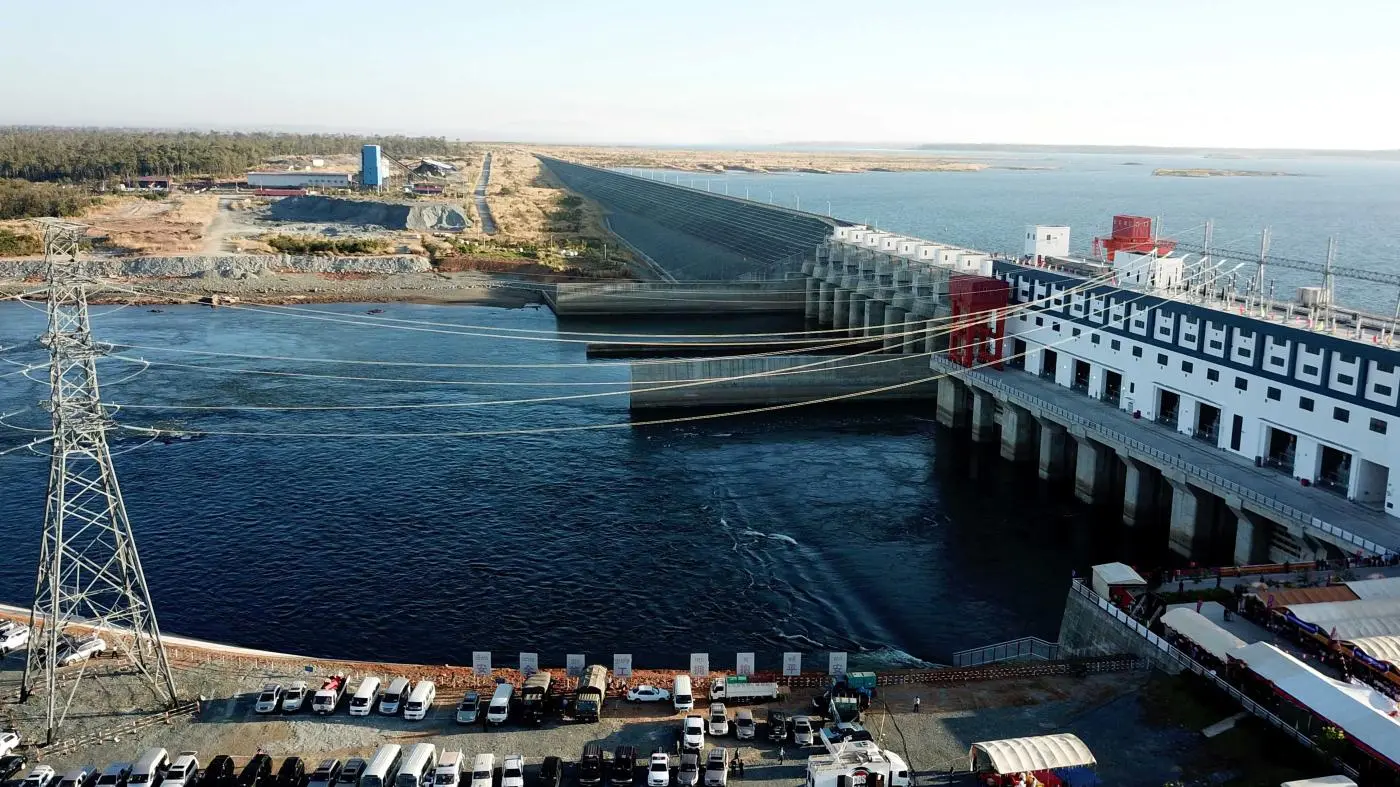The people living in the climate-vulnerable Lower Mekong region are getting exposed to the immense risk of droughts and flooding, thanks to the haphazard construction of dams by China. This hurts livelihoods and risks the survival of over 245 million people in Vietnam, Thailand, Laos, Myanmar and Cambodia. These people now are exposed to crop loss and nutritional insecurity—due to a reduction in nutrient-rich sediment.
The disruption of the Mekong River flow due to Chinese dams is going to cause high inflation, widespread hunger, and lower productivity.
“If there’s food security crisis, then the industry suffers as well as labour If there’s no food on the table, then you can’t grow economically,” said Brian Eyler, director of the Southeast Asia Program at the Stimson Centre. “Water security is one thing, but water underpins the food security of these countries. And [if] people are starving, what chance is there for economic growth?”[1]
China’s bid to build dams on Mekong and other rivers originating from Tibet to meet its domestic water and energy requirements has not only robbed the poor countries of their rightful resources but caused damage to the environment to a great extent. “These [measures] of course have created major concerns from the downstream countries, such as environmental concerns that have potential impacts on water resources and the ecosystems,” Dr Hongzhou Zhang, a water specialist at Singapore-based Nanyang Technological University.[2]
Mekong River itself faces an existential threat due to the environmental damage caused by the Chinese dams. Scientists said the very characteristics of the Mekong River have altered due to the dam-construction-led environmental damages.[3] “The Mekong is dying a death of a thousand cuts from these dams,” Eyler said.[4]
China’s spree of upstream dam building has disrupted the flow even as the Mekong River reached its lowest levels in a decade. The quantity and quality of Mekong water in the downstream countries have been reduced. China has been receiving backlash from the affected countries as well as the international community due to the profound potential effects on these Southeast Asian countries.[5]
While Beijing claims to be a benevolent international player, it has thrown challenges for transboundary river cooperation, especially, in the Mekong region.[6] There are concerns among the downstream countries about China’s intentions of exploiting natural resources without concern for the local populace. Chainarong Setthachua, a lecturer and Mekong expert at Thailand’s Mahasarakham University, said “This is part of China’s business development. The lay people who depend on the resources of the Mekong River for their livelihoods and income are automatically excluded.”[7]
China has been accused of maintaining no transparency in water sharing.[8][9] Natasha Hall, senior fellow with the Washington-based Center for Strategic and International Studies (CSIS), said Beijing signed water-sharing agreements with upstream countries but has shown reluctance to do the same with downstream ones. “China lacks even a single transparent and binding water-sharing arrangement with the affected downstream neighbours,” she said.[10]
Water flow restriction caused by the Chinese dams was responsible for the severe water crisis in downstream areas in 2019, according to a study conducted by the Lower Mekong Initiative (LMI), a multinational partnership platform.[11] There are 13 major dams on the Mekong River, of which 11 are in China. Beijing paid no heed to the concerns raised by downstream countries as it continues to blame natural factors for the problem.[12] “I believe China has ears, but when will their ears open up to listen to our voice?” said Thailand-based environmentalist Niwat Roykaew.[13] China has used its economic and military might to disregard the objections and protests by these nations as it rides on aggressive hydroelectric development to bolster its energy security. The Lower Mekong countries have deep trade ties with China, which gives Beijing geopolitical leverage to dominate the water-sharing game. At the same time, they are concerned about the deteriorating agricultural system due to interrupted and lesser flow of water. “For three decades, China has been building dams on the upper Basin of the Mekong River, worrying countries downstream that China could one day turn off the tap,” Eyler said.
[1] https://www.voanews.com/a/china-s-mekong-river-dams-expected-to-worsen-southeast-asian-economies-during-drought-/7211918.html#:~:text=There%20are%20430%20dams%2C%2011,China%2C%20along%20the%20entire%20Mekong.
[2] https://asia.nikkei.com/Spotlight/Asia-s-Age-of-Hydropolitics/China-dams-make-upstream-superpower-presence-felt-in-Asia
[3] https://thediplomat.com/2022/11/the-precarious-state-of-the-mekong/
[4] https://chinamediaproject.org/2023/07/11/telling-the-mekong-story/
[5] https://mm.usembassy.gov/opening-remarks-at-the-lower-mekong-initiative-ministerial/
[6] https://asiatimes.com/2023/05/mekong-squeeze-tests-chinas-good-neighbor-narrative/
[7] https://www.nytimes.com/2020/04/13/world/asia/china-mekong-drought.html#:~:text=the%20Mekong%27s%20Flow.-,Other%20Countries%20Suffered%20a%20Drought.,%2C%20Laos%2C%20Cambodia%20and%20Vietnam
[8] https://cambodianess.com/article/mekong-river-commission-calls-for-more-transparency-among-members-and-china
[9] https://www.csis.org/analysis/water-multipolar-world-china-and-issue-water-management#:~:text=Yet%20despite%20building%20numerous%20dams,with%20the%20affected%20downstream%20neighbors.
[10] https://www.csis.org/analysis/water-multipolar-world-china-and-issue-water-management
[11] https://558353b6-da87-4596-a181-b1f20782dd18.filesusr.com/ugd/bae95b_0e0f87104dc8482b99ec91601d853122.pdf?index=true
[12] https://www.reuters.com/world/asia-pacific/china-mekong-countries-should-share-water-data-dam-operations-study-2023-10-09/
[13] https://www.nbcnews.com/news/world/chinese-dams-mekong-river-endanger-fish-stocks-livelihoods-activists-say-n1288720

Leave a Reply